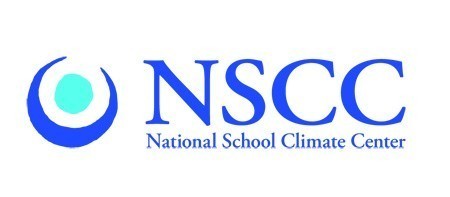National School Climate Center
Fundraising campaign by
STEVEN rego
-
US$1,566.00Donated So Far
Campaign Story
We can all remember childhood moments when we felt particularly safe (or unsafe) in school, when we felt particularly connected to a caring adult (or frighteningly alone), when we felt particularly engaged in meaningful learning (or not). These are the school memories that we all tend to vividly remember: good and/or bad. It is not surprising that these kinds of experiences shape learning and development. However, school climate is larger than any one person's experience. When people work together, a group process emerges that is bigger that any one person's actions. A comprehensive assessment of school climate includes major spheres of school life such as safety, relationships, teaching and learning, and the environment as well as larger organizational patterns (e.g. from fragmented to shared; healthy or unhealthy). How we feel about being in school and these larger group trends shape learning and student development. Peer-reviewed educational research has consistently demonstrated that a positive school climate is associated with academic achievement, effective risk prevention efforts and positive youth development. * 1 in 10 schools is a “drop-out factory,” a high school where only 60% of freshmen or fewer make it to senior year. Measuring school climate reveals areas of risk for dropouts. A positive school climate increases student engagement (how committed a student is to their school), effectively reducing the risk for dropouts and violence. * Nearly 50% of new teachers leave the profession by the end of their fifth year A democratic, safe and supportive environment (where all voices are honored) helps keep teachers happy – which increases teacher retention – a real problem in many urban schools. NSCC helps schools focus professional development training where it's needed most, so staff are better supported and engaged. * Almost 30% of youth in the United States are estimated to be involved in bullying as a bully, target of bullying or both Results from NSCC’s CSCI (and other research) shows that school climate directly affects academic achievement – when kids feel safe and supported, they perform better in school. * 50% of the nation's unemployed youth are functionally illiterate, with virtually no prospects of obtaining good jobs A positive school climate is directly linked to improved academic achievement and provides students with the prosocial skills - like flexible problem-solving, teamwork and conflict resolution - that lead to life success. Together We Can Turn These Statistics Around! Mission Statement NSCC's mission is to measure and improve the climate for learning in schools to help children realize their fullest potential as individuals and as engaged members of society. NSCC achieves this through: * Advocacy and policy * Measurement and research * Educational services Advocacy and Policy Advocacy is a central part of NSCC’s work through publications, resource development and educational outreach. NSCC also takes a leadership role in consultation and communications efforts to State Departments of Education, national educational organizations, policy makers and concerned citizens, and works closely with the the National School Climate Council, a group of policy and practice leaders. Measurement and Research NSCC has developed a research-based school climate survey that can be used as a needs assessment and springboard for school improvement planning. The Comprehensive School Climate Inventory (CSCI) has been used with schools, districts, and networks of charter schools across America and the Ohio Department of Education (ODE). NSCC continues to work with school teams across the country to effectively measure and improve school climate. Educational Services NSCC provides comprehensive educational support services to school faculty, staff, administrators and parents, which include: workshops, on-site coaching, and an annual summer institute. Topics include: measuring and improving school climate; breaking the bully-victim-bystander cycle; infusing social, emotional and civic learning into school curriculums; understanding diversity and respect for differences; and many more. For more about how we help school communities view our programs and services online at www.schoolclimate.org/programs.
Organizer
- STEVEN rego
- Campaign Owner
Donors
- KIM Vogelgesang
- Donated on Jan 17, 2018
- victor Nardulli
- Donated on Jan 17, 2018
- Angela smith
- Donated on Jan 17, 2018
No updates for this campaign just yet
Donors & Comments
- KIM Vogelgesang
- Donated on Jan 17, 2018
- victor Nardulli
- Donated on Jan 17, 2018
- Angela smith
- Donated on Jan 17, 2018
- Anonymous
- Donated on Jan 12, 2018



